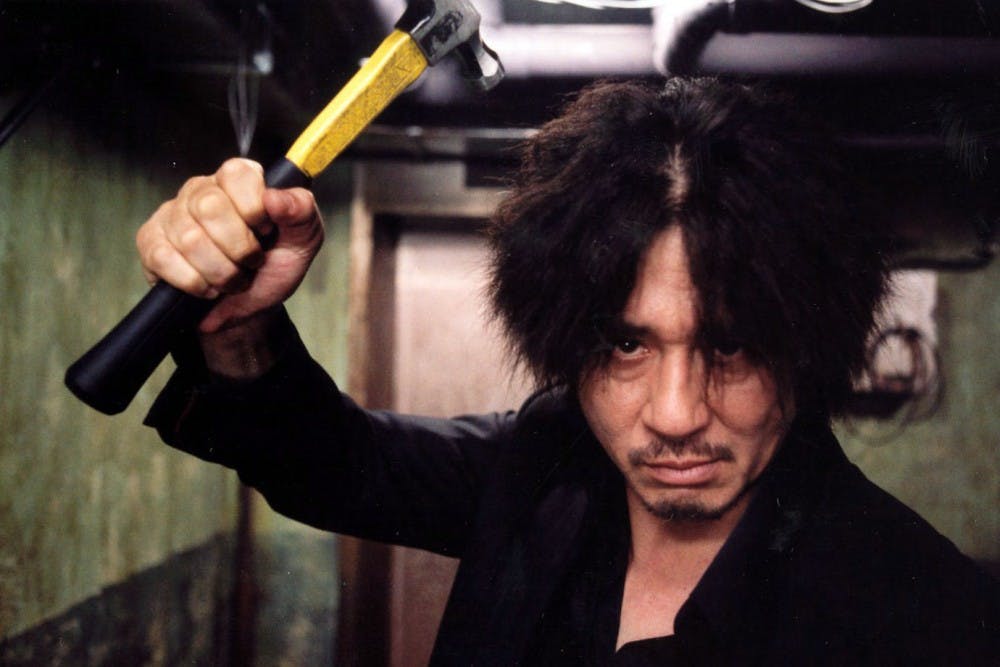It was recently announced that an American remake of the acclaimed South Korean horror film “Train to Busan” is in the works. Set to be produced by “Saw” director James Wan, it will presumably retell the story of a father and his estranged daughter trapped on a train in the midst of a zombie outbreak.
In the original film — which you can currently stream on Netflix, and you should — the turmoil begins as the pair board a train headed for Busan, where the girl’s mother lives. Perhaps it’s safe to anticipate the remake to be entitled “Train to Los Angeles.”
It’s also reasonable to assume that the remake won’t hold a candle to the verve, excitement and brilliance of the original. And that it will be the latest in a long stream of English-language Hollywoodized remakes of foreign films that shamelessly pilfer the culturally significant work of brilliant international filmmakers, whitewash it and sand it into something creatively barren but accessible enough to make back its budget.
For Hollywood, it’s always about the money, rarely about the art and never about cultural respect.
There’s a long-standing tradition of such remakes, from “Brick Mansions” to “Let Me In.” Hollywood has no qualms borrowing from the works of other artists for profit, and while studios pay for the rights to an intellectual property, they don’t pay for the erasure of remaking an already significant work and parading it as the definitive version to an audience too lazy to seek out the foreign language version of a film, or even read its subtitles.
And the thing is, “Train to Busan” doesn’t need a remake because it’s already exceptional. Director Yeon Sang-ho created an instant horror classic that revitalizes the zombie movie, eschewing genre tropes in favor of electrifying thrills and unexpected emotion. It is at once stirringly immediate and invigoratingly tense, bolstered by the empathy it lends its characters as well as the masterful hand of its director.
If Hollywood studios want to profit from foreign films like “Train to Busan” and the wealth of other brilliant and culturally significant films, they should invest in distributing such films for mass audiences stateside, not simply remaking them.
It also profits from the fact that it was made as far from Hollywood as possible, because it thrives on a brand of hard-as-nails, viscerally brutal action that would never make it past the pitch room in Hollywood. Because, after all, Hollywood studios care more about the profit than the art, and allowing too much violence ensures a lower box office draw than the muted, censored action of a PG-13 movie.
That, combined with studio filmmaking’s love of guns, shootouts, explosions and fake-looking CGI violence, has long inhibited Hollywood action movies from thriving. Compare the products of Hollywood and foreign action cinema, and you’ll find a long-standing tradition of thrilling, singular and viscerally intense works from a range of different countries; films like “Oldboy,” “The Raid” and scores of other films like them.
The roots of such cinematic endeavors are, at least in part, traceable to the days of martial arts films, when practical viscerality and physical prowess were allowed to outshine all else, and narrative wasn’t paraded as so all-important that a compelling plot became more of a priority than captivating action.
“Train to Busan” thrives on action. It’s brutal, electric, show-stopping. A stupendous riptide of frenetic intensity, motion and mayhem that feels something like downing seventeen espresso shots and taking a needle of adrenaline straight to the heart. It’s pulse-pounding and riveting, gory and graphic. It can’t exist in Hollywood, and it won’t exist in Hollywood.
Like the victims of its vicious, bloodthirsty undead, it will be torn limb-from-limb and drained of its heart and soul, only to rise from the dead parading as something it isn’t: human.




